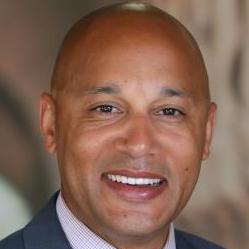 Last month the school board in Oakland, California, voted to close or merge nearly a dozen of the district’s 80 schools, citing enrollment declines and financial challenges made worse by the pandemic. With that decision, Oakland joined a growing number of cities that have issued mass school closures in recent years, including Chicago, Detroit, and Philadelphia.
Last month the school board in Oakland, California, voted to close or merge nearly a dozen of the district’s 80 schools, citing enrollment declines and financial challenges made worse by the pandemic. With that decision, Oakland joined a growing number of cities that have issued mass school closures in recent years, including Chicago, Detroit, and Philadelphia.
Opponents of school closures typically point to the impact on students’ education, such as larger class sizes and longer travel times to and from school. But according to a sweeping new study by Stanford researchers, shuttering a school affects more than its students’ education. It changes the landscape of a community, contributing to the disintegration of Black neighborhoods nationwide.
Researchers at Stanford Graduate School of Education combined U.S. Census data with national statistics on school closures to investigate whether the closures affected patterns of gentrification, a phenomenon marked by an influx of relatively affluent residents in previously disinvested neighborhoods and subsequent rises in housing prices.
School closures increased gentrification, the study found – but only in predominantly Black neighborhoods.
 “School closures are one of the most politically fraught issues in urban school reform today,” said Francis A. Pearman, an assistant professor at Stanford GSE and lead author of the study. “This study sheds new light on the consequences of these closures, in particular for the future of Black communities.”
“School closures are one of the most politically fraught issues in urban school reform today,” said Francis A. Pearman, an assistant professor at Stanford GSE and lead author of the study. “This study sheds new light on the consequences of these closures, in particular for the future of Black communities.”
“When schools in Black neighborhoods remain open, surrounding areas are unlikely to experience gentrification,” Dr. Pearman said. “This is partly due to the fact that affluent households, especially affluent white households, are unlikely to enroll their children at majority Black schools, regardless of their quality.”
The study, which provides the first quantitative evidence of the impact of school closures on gentrification, was recently released as a working paper by the Stanford Center for Education Policy Analysis and will be published in the journal Sociology of Education this spring.












Lets be clear for a moment. This study is not NEW about this study because the visual quantifiable evidence is overwhelming that anyone with an inkling of intelligence could see it. Stanford University along with have Francis Pearman the Chutzpah to examine cities outside of California when Los Angeles, Compton, Inglewood, and especially Oakland have literally been ethnically cleansed (of native born Black Americans).
Francis fail to specifically point out the direct role the racist IT industry(can you say Silicon Valley?) racist policy makers in those respective cities along with the very racist financial and insurance industry as it specifically pertain to native born Black Americans and mortgage lending
In my view, this study is nothing more than neoliberal and politically correct analysis which fail to hold anyone publicly accountable. What else do you expect to come from the higher education cesspool on Palo Alto.